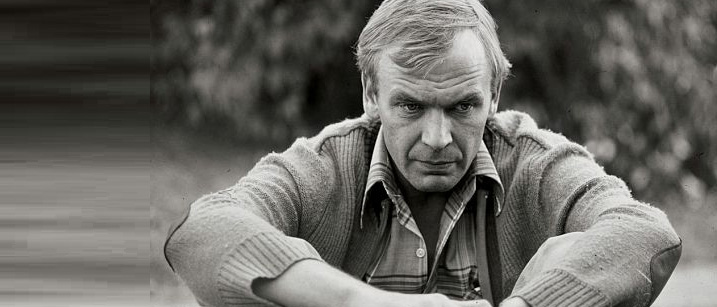Lithuanian theatre entered the 1970s having liberated its capacity to somehow circumvent or disregard ideological pressure and having concentrated on matters of artistic expression. To be sure, it had to continue to support a Soviet theatrical facade, concerning itself with the creation of a "correct" Soviet repertoire, the presentation of productions affirming "communist morality", and the proper celebration of all "red" holidays, etc. However, this image of obedient theatre was very often a mere formality, realized more in theory than in practice. New experiences and semblances of freedom emerged in the theatre world.
This freedom was primarily associated with the emergence of vibrant and creative directorial talent. One director after another emerged on Lithuanian stages from the end of the 1960s, each with his or her own distinct conception of theatre: particularly outstanding were the voices of "conditioned" directors such as Povilas Gaidys and Jonas Jurašas, while those enjoying successful debuts at the end of the 1960s and start of the 1970s included Algirdas Lapėnas (1944–1993), Natalya Ogai, Dalia Tamulevičiūtė (1940–2006) and Irena Bučienė (1940–2001). The latter half of the 1970s saw a rediscovery of Aurelija Ragauskaitė, as well as the rise of Jonas Vaitkus and the first mentions of the names Gytis Padegimas, Saulius Varnas, Eimuntas Nekrošius and Rimas Tuminas.
The drivers of the Lithuanian theatrical engine at the end of the 1960s and start of the 1970s were intimately familiar with the innovations of Soviet Russian theatre and the directors that defended an original point of view and free interpretation, including Anatoly Efros, Mark Zakharov, Yuri Lyubimov, Georgy Tovstonogov, among others. In one way or another, as a result of the "thaw" that allowed a peak through the "iron curtain", they had also become familiar with some of the new explorations underway in Western theatre. Yet their conception of directing had its strongest foundation in their own artistic individuality – in an original worldview and a distinct vision and way of thinking.
At the close of the 1960s and in the 1970s this new directing style – with original, authentic ideas and their embodiment on stage – brought artistic vitality to Lithuanian theatre. Theatre life seemed to thrive on several directorial islands. One of the most fundamental efforts that unified these islands was the attempt to critically rethink Soviet reality. This unique form of artistic protest, rebellion and truth-telling grew to prominence in the late 1960s, and remained vibrant throughout the following decade. A symbolic space of freedom was irrevocably created by the theatre, and it continued to open and grow.
A critical view of Soviet reality emerged in Lithuanian theatre alongside the development of a specific theatrical language. In the late 1970s, this language was defined in terms of Lithuanian theatrical terminology as the concept of "metaphorical theatre", and it was characterized as a language of indirect poetic expression that allowed for more ample abstraction, a multifaceted stage vision, more associative stage imagery, etc. Dovydas Judelevičius, „Kelyje į metaforišką teatrą“, Kultūros barai, 1979, Nr. 7, p. 12–15. Lithuanian theatre examined the reality of the time in a language that masked realism with an aesopian language of poetry and metaphor. A voice of political protest was heard in theatres, but that voice was poetic, not political. Put another way, theatre was political in subtext, but innocently apolitical in literal text. "Evidence" of this type of theatre in the 1960s and 1970s was relatively abundant, but it most effectively emanated from the drama theatre stages in Klaipėda and Kaunas. The works of Gaidys, Jurašas and Vaitkus were a constant headache for government leaders.




Comments
Write a comment